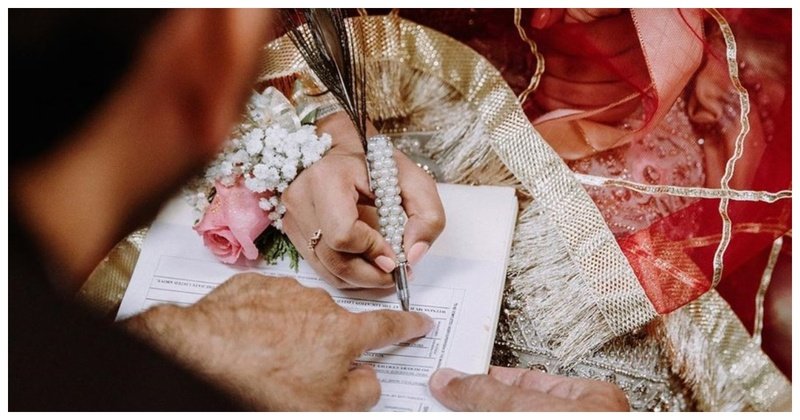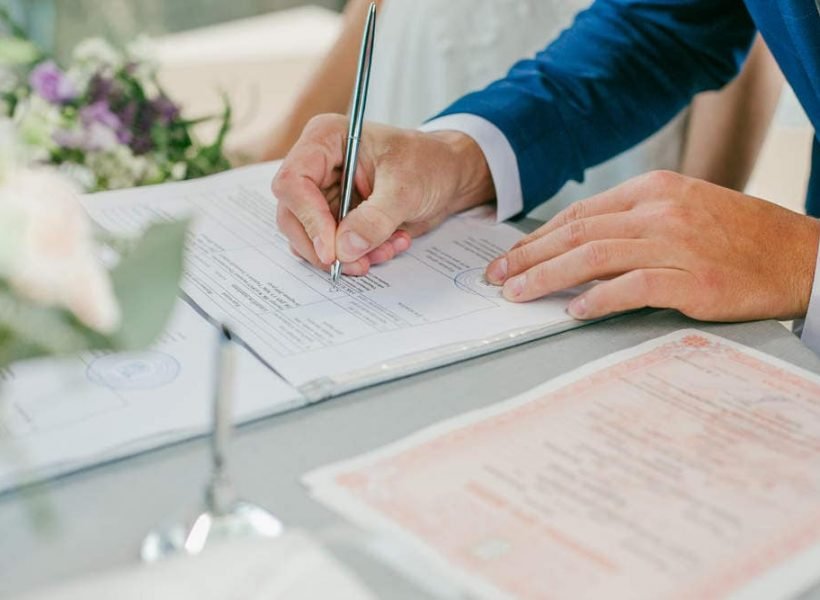Court Marriage in Pakistan-Benefits & Fee of Court Marriage
Court Marriage in Pakistan, Its Fee and Benefits in Pakistan
Court marriage in Pakistan has become an increasingly popular choice among couples seeking a legally recognized union without the complexities and expenses of traditional wedding ceremonies. This streamlined process allows couples to solidify their bond straightforwardly and legally. This article will explore the process, legalities, and many benefits of court marriage in Pakistan.
Understanding Court Marriage in Pakistan
Court marriage in Pakistan is a legally binding procedure that allows two consenting adults to marry without the need for a large traditional wedding. It involves the couple, witnesses, and an authorized lawyer or marriage registrar who can solemnize and register the marriage under Pakistani law. For those seeking a legal and efficient marriage process, court marriage provides an ideal solution.
What is Court Marriage?
Many couples choose to get married in a court instead of a civil ceremony.
A court marriage is a legal marriage that takes place in a lawyer’s office, instead of a religious or civil ceremony. Court marriages are typically quicker and cheaper than traditional weddings, but they are not recognized by the government as valid marriages.

Court Marriages are Normal Marriages
There are practically no differences between court marriages, civil marriages, love marriages, and courtship marriages in Pakistan. Courtship marriages are normal marriages, and Nikah is an essential part of all Muslim marriages.
Court Marriages in Pakistan are based on Religion
Western countries do not require couples to be religious to get married, however, Pakistan is a theocratic country where religion is integral to Pakistanis, regardless of their religion. Religious rituals may or may not be included in the registration of marriages according to local laws. Love marriages, on the other hand, can either be celebrated as a courtship marriage or in a traditional manner. Whether or not their parents approve, couples in love can do this. The approval of parents is not required for couples in love.
The Benefits of Court Marriage in Pakistan
Court marriage in Pakistan offers multiple advantages for couples seeking a quick, cost-effective, and lawful union. Here are some key benefits:
1. Legal Protection and Recognition
Court marriage provides complete legal protection to both parties, ensuring their rights are safeguarded under Pakistani law. This protection is essential for securing inheritance, property, and other marital rights that may not be formally recognized without proper marriage registration.
2. Efficiency and Simplicity
One of the most significant benefits of court marriage in Pakistan is its straightforward process. Unlike traditional weddings, which can take months to plan and involve numerous expenses, court marriage can often be completed in a single day with minimal formalities. This simplicity appeals to many couples who prefer a direct path to marital union without elaborate rituals.
3. Affordable Option
Traditional marriages in Pakistan can be financially burdensome due to the expenses associated with the event, such as venue, food, decorations, and more. Court marriage, however, is a highly affordable alternative that saves both time and money. With court marriage, couples only need to pay a nominal fee for the legal process, making it accessible to a broader range of people.
For one, it is a more intimate setting than a large wedding ceremony. This can be especially beneficial for couples who want to avoid the hassle and expense of a traditional wedding.
Court marriages tend to be much less expensive than traditional weddings. If you are on a tight budget, this can be a great way to save money while still having a beautiful and memorable wedding day.
4. Privacy and Discretion
Court marriage in Pakistan is ideal for couples seeking a private ceremony without the involvement of extended family and social circles. This allows couples to marry discreetly, honoring their commitment to each other without social pressures or interference. Privacy is particularly important for individuals from conservative backgrounds or those facing social or family objections.
Court Marriage is often seen as a more private way to get married, as it does not involve all the pomp and circumstance of a traditional wedding. This can be a major benefit for couples who want to keep their marriage low-key or who may not have the resources to put on a big wedding.
5. Freedom of Choice and Autonomy
Court marriage upholds the principle of choice, allowing consenting adults to make independent decisions about their marital lives. In Pakistan, where arranged marriages are still common, court marriage empowers individuals to select their life partners freely. It is especially advantageous for interfaith or intercultural couples, who may face challenges in gaining family approval.
Court Marriage Provides Flexibility in Schedules for Couples

Court marriage provides couples with greater flexibility when it comes to choosing their wedding date. Because there is no need to obtain a state marriage license, they can schedule their wedding for any day that works for them. This can be especially helpful for couples who live in different states or countries and cannot coordinate their schedules easily
Court Marriage Allows Couples to Start Their Lives on Their Own Terms
One of the main Benefits of Court Marriage is that it gives couples the opportunity to start their lives together on their own terms. Couples who choose to marry through the court system are not bound by the expectations or approval of their families, which can often be a source of stress and conflict.
Court Marriages vs Proxy Marriages
Despite the fact that there are many websites about court marriage and online nikah services around the world, due to a lack of legal knowledge and a lack of knowledge regarding the requirements for court marriages, proxy marriages, and online marriage. A proxy marriage is a marriage in which one or both parties are not physically present, usually due to circumstances beyond their control.
Court Marriage in Pakistan is a Legal Process
Court Marriage in Pakistan is a legal process that allows couples to marry without the need for parental consent or approval. The process is simple and straightforward, and it can be completed in a matter of days. There are a few requirements that must be met in order to be eligible for court marriage in Pakistan, but the process is relatively simple and straightforward.
Is There a Court Marriage Law in Pakistan?
There is no separate and specific court marriage law in Pakistan. When the British ruled the subcontinent of Pakistan and India, civil marriages or court marriages were introduced. In many countries, such as India and South Africa, there is a separate “Court Marriage Act” that specifies how to solemnize marriages under court supervision.

Documents Required for Court Marriage in Pakistan
There are a few documents required for court marriage in Pakistan which are as follows:
- National Identity Card (NIC) of both the bride and groom
- Passport-sized photographs of both the bride and groom
- Two witnesses with their NICs
Family Lawyer for Court Marriage
The first thing that you need to do is to find a lawyer who specializes in family law. This will ensure that your case is handled correctly and that you have the best chance of success. You can find a list of lawyers at our firm that are specialized in family law. For further information, you can get in touch with us,
The Process of Court Marriage in Pakistan
The process of court marriage in Pakistan is designed to be simple, quick, and legally valid. Here’s a step-by-step overview:
- Eligibility: Both parties must be consenting adults, generally at least 18 for females and 21 for males, as required by Pakistani law.
- Documentation: Required documents typically include national identity cards or passports for both parties, recent photographs, and affidavits affirming their intent to marry. Non-Muslim parties may need additional documentation.
- Legal Representation: A lawyer is often engaged to oversee the process, ensuring that the marriage complies with legal formalities and is properly registered.
- Marriage Solemnization and Registration: The marriage is solemnized by a registrar or magistrate, and once completed, a marriage certificate (Nikahnama) is issued. This document legally validates the marriage and serves as proof of the union.
Legal Implications of Court Marriage in Pakistan
Under Pakistani law, court marriage carries the same legal validity as any other form of marriage. Couples who marry in court receive a Nikahnama, or marriage certificate, which serves as proof of their marriage. This certificate is crucial for various legal purposes, including immigration, obtaining spousal benefits, and ensuring that the marriage is recognized under family law.
Rights and Responsibilities in a Court Marriage
Upon court marriage, both parties are granted rights and responsibilities under Pakistani law, which include:
- Right to Inheritance: Both parties are legally entitled to inherit from each other as per the laws of Pakistan.
- Financial Responsibility: The husband bears the financial responsibility for his wife’s maintenance, and both parties have a duty to support any children resulting from the marriage.
- Legal Custody and Guardianship of Children: Any children born from the marriage have legally recognized parents with rights to custody and guardianship as outlined in family law.
Court Marriage as a Solution to Family and Social Challenges
Court marriage in Pakistan serves as a solution for couples facing family or social challenges. For example, couples from different religions or sects, or those who prefer to marry without family interference, can legally wed through court marriage. This form of marriage provides them with the opportunity to formalize their union according to their own decisions and preferences.
FAQs About Court Marriage in Pakistan
Q1: Is court marriage accepted by all communities in Pakistan?
Yes, court marriage is legally recognized across Pakistan. Although it may face social resistance in some conservative communities, it is fully valid under Pakistani law.
Q2: How long does the court marriage process take?
The entire process can usually be completed within an hour if all documents are in order.
Q3: Are witnesses required for court marriage?
Yes, two witnesses are typically required for court marriage to meet the requirements of a lawful union.
Embracing the Benefits of Court Marriage in Pakistan
Court marriage in Pakistan is a practical, efficient, and legally sound option for couples looking to marry with minimal formalities. It offers legal protection, privacy, and autonomy while also ensuring that all rights and responsibilities are clearly outlined. In a country where family expectations can sometimes override personal choices, court marriage stands as a testament to personal freedom and legal equality. For couples ready to commit to each other without the elaborate trappings of traditional weddings, court marriage in Pakistan offers an ideal path to a lifelong partnership.
Considering Court Marriage in Pakistan? We’re Here to Help You Every Step of the Way
If you’re exploring the option of a court marriage in Pakistan, our firm is ready to provide you with comprehensive information and resources to make an informed decision. We guide couples through each stage of the court marriage process, ensuring a streamlined and legally secure union. Our team will help you understand the numerous benefits of choosing a court marriage in Pakistan, from simplicity to legal clarity.
Expert Guidance for a Seamless Court Marriage in Pakistan
Our firm is equipped to help you navigate all requirements for a court marriage in Pakistan, ensuring that every detail is carefully addressed well before your special day. From document preparation to legal formalities, we handle the essentials so you can focus on your new journey together. If desired, we also offer guidance on post-marriage formalities, such as name change procedures, making your transition smooth and hassle-free.
Contact Us for Court Marriage Services in Pakistan
Ready to learn more about court marriage in Pakistan? Reach out to us today! Call or WhatsApp us at +92 333 1127836 to discuss your needs, understand the court marriage process in detail, and get answers to any questions you might have. We’re here to make your court marriage in Pakistan a straightforward and memorable experience.
Recent Post
Dont Hesitate To Contact Us
Location: Karachi – Islamabad – Rawalpindi – Lahore Pakistan
